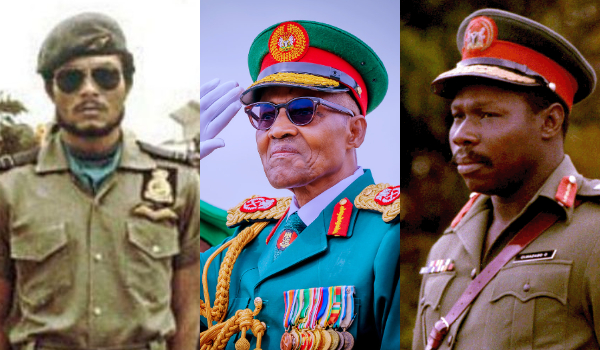Across Africa’s turbulent post-independence era, the military often held the reins of political power. Coups became a recurring theme from the 1960s to the 1990s. However, some of those who once seized control through force eventually exchanged their uniforms for suits, stepping into office through democratic elections. Here’s a deep dive into notable African military leaders who made that rare transition from strongmen to elected heads of state:
1. Jerry John Rawlings – Ghana
Rawlings, a former Flight Lieutenant in the Ghanaian Air Force, initially grabbed power in 1979 via a coup. After briefly stepping aside for civilian rule, he staged another successful takeover in 1981 and ruled under the Provisional National Defence Council (PNDC). Eventually, he reintroduced multi-party democracy in 1992 and won Ghana’s presidential elections, serving two constitutional terms until 2001. He’s widely credited with laying the groundwork for the nation’s modern democratic structure.
2. Olusegun Obasanjo – Nigeria
After assuming Nigeria’s leadership in 1976 following the assassination of Murtala Mohammed, Obasanjo governed as a military ruler until 1979, when he voluntarily handed power to civilians. He later returned as a civilian politician, winning the 1999 election that ushered in the Fourth Republic. Obasanjo completed two terms in office and is remembered for his unique role in both military and civilian transitions of power.
3. Muhammadu Buhari – Nigeria
As a military general, Buhari overthrew President Shagari in 1983 and ruled with a reputation for discipline and anti-corruption crackdowns until 1985. Decades later, he made a political comeback and was elected president in 2015 through a democratic process. He led Nigeria for eight years, leaving office in 2023 amid mixed reviews over economic challenges and security concerns.
4. Paul Kagame – Rwanda
Commander of the Rwandan Patriotic Front (RPF), Kagame ended the 1994 genocide and became vice president and defense minister before taking the presidency in 2000. Though elections followed, his democratic credibility remains contested due to constitutional revisions that extended his time in office. Kagame is applauded for economic reforms but criticized for restricting political opposition.
5. Abdel Fattah el-Sisi – Egypt
A former defense minister, el-Sisi led the military action that removed President Morsi in 2013. He later ran for president and won Egypt’s 2014 elections. While he brought stability after the Arab Spring, his administration has faced allegations of suppressing freedoms and human rights.
6. Ibrahim Baré Maïnassara – Niger
Maïnassara’s transition was marred by controversy. After a coup in 1996, he organized an election that international observers deemed rigged and declared himself president. His authoritarian style and economic struggles led to rising tensions, culminating in his assassination by his own guards in 1999 — a stark warning about the dangers of incomplete democratic transitions.
7. Blaise Compaoré – Burkina Faso
Compaoré came to power in 1987 after overthrowing Thomas Sankara. He ruled first as a military leader, then as an elected president from 1991. Over nearly three decades, he maintained his grip through controversial constitutional amendments. But in 2014, mass protests over his attempt to extend his rule forced him to resign and flee the country.
8. Yoweri Museveni – Uganda
Museveni seized power in 1986 after a lengthy guerrilla war. Initially skeptical of multi-party systems, he later allowed elections. He won the presidency in 1996 and has remained in power ever since, aided by the removal of term and age limits. While credited with national stability, Museveni’s long rule has drawn accusations of authoritarianism.
9. Julius Maada Bio – Sierra Leone
Bio’s case is particularly rare. A key player in a 1996 coup, he briefly ruled as head of state before willingly handing over power to elected leaders. He later re-entered politics, losing one election but eventually becoming president in 2018. His long road from military ruler to elected leader highlights a unique path of political redemption.
